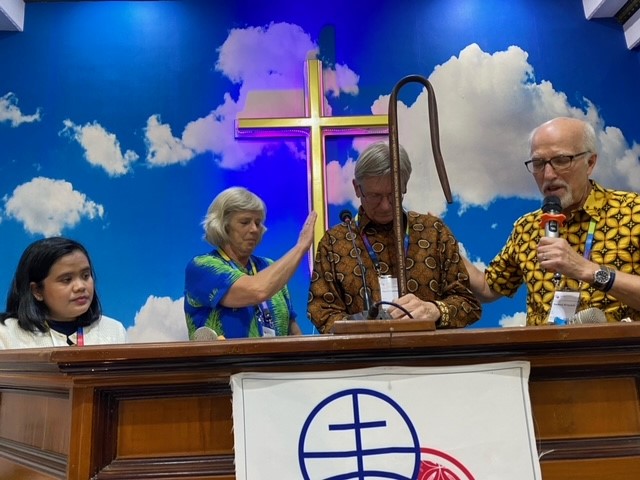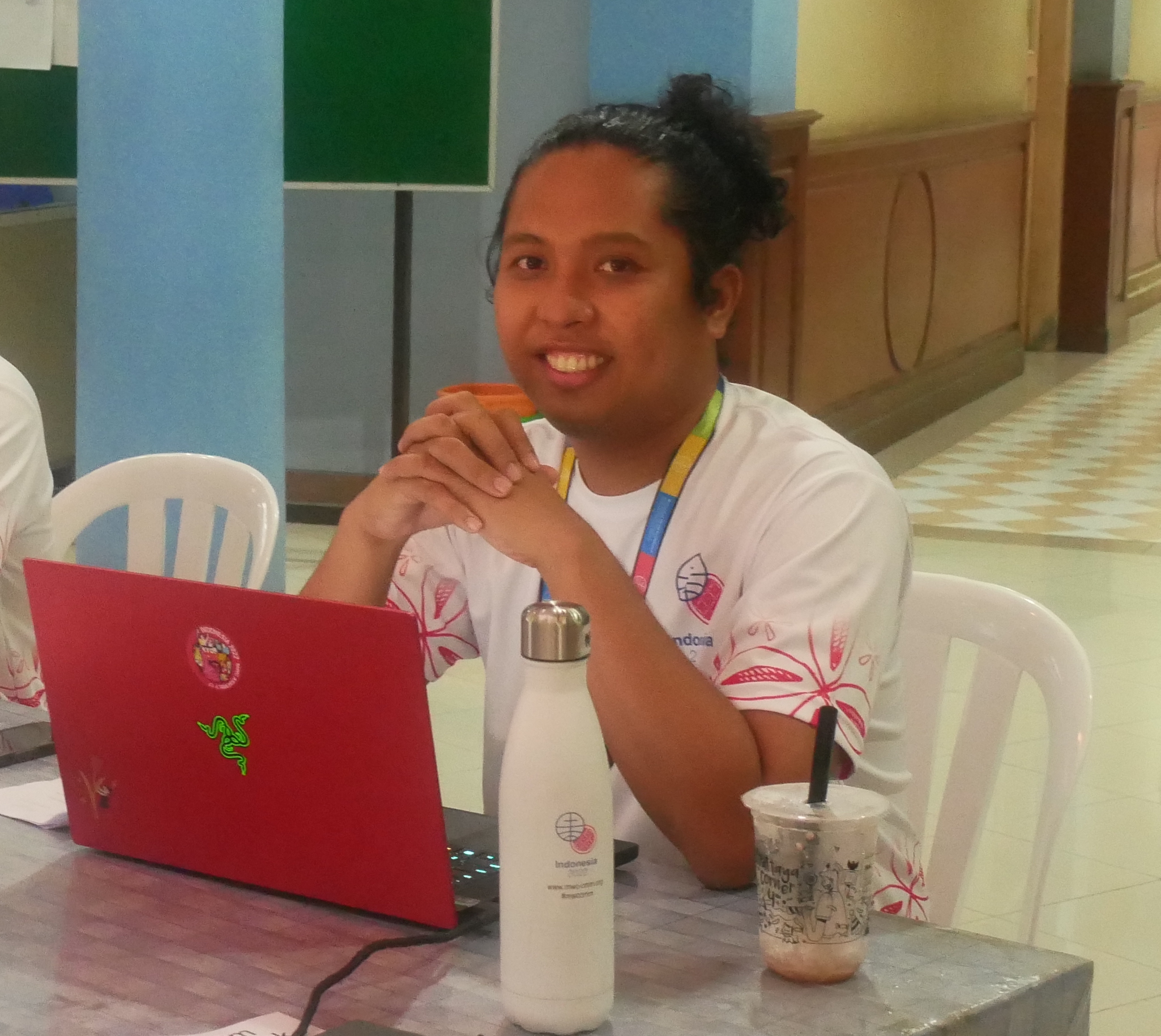“I learned that each participant has their own accent; it comforted me to know that having an accent is normal,” says Hens Sita, a member of GITJ Kelet, Indonesia.
In advance of the Mennonite World Conference Assembly in Indonesia, IndoMenno (a collaborative of the three Indonesian synods*) facilitated language classes in both English and Indonesian.
Up to 1 000 guests, many of them English-speaking, were anticipated to attend Mennonite World Conference’s Assembly 17 in Indonesia in 2022. Some 100 local volunteers were recruited to serve them.
MWC offers all written and most spoken communication in English, Spanish and French. For Assemblies, English and the local language – in this case, Bahasa Indonesian – become the stage language while interpreters relay proceedings through headsets in Spanish and French.
Not only were Indonesians learning to speak English, MWC event staff also took lessons in Indonesian.
Deeper knowledge

MCC International supported the classes, teachers and materials.
For English, a two-day training session equipped teachers to offer local classes (supported by videos and written materials). The target of 60 trainers was nearly reached: each then trained multiple learners in their local congregations for more than a hundred volunteers to serve Assembly guests.
Hens Sita joined the classes “to have deeper knowledge of the English language and self preparation on how to welcome guests with proper and polite English.” She interpreted English into Indonesian in some workshops and appreciated the opportunity to join seminars to learn more about Mennonites during Assembly.
Her highlight was serving as interpreter at the Margokerto satellite site for the presidential transition from J. Nelson Kraybill to Henk Stenvers.
Key words and good attitudes
Indonesian classes were offered online twice a week for about two months for the six Assembly staff who were based in Indonesia.
Although the instruction wasn’t enough to learn the language, Assembly staff learned key words, basic language structure and some cultural factors. “Although I always brought someone to translate for me when meeting with people [on business], it was still very helpful [to have taken the classes],” says Ebenezer Mondez.

In his work on the multilingual website and the complicated registration forms, this basic knowledge of Indonesian language and culture often proved useful.
Tagalog-speaking Ebenezer Mondez had an advantage in learning Indonesian from a related language family. “Because of the training, I was able to connect some dots between the two languages” and he was pleased to be able to get around the city independently.
“I never had any opportunities to speak Bahasa Indonesia after leaving the country and I’m afraid I will lose it in the long run,” says Ebenezer Mondez, “but I actually think it is a very important language for us in Southeast Asia since it’s spoken in Indonesia, Malaysia, Singapore, Brunei and Timor Leste.”
“MWC is about creating relationships in our global family,” says Liesa Unger, chief international events officer. On a day-to-day basis, this happens between national member church leaders, but at Assemblies, MWC congregation members cross barriers to know each other face to face as members of the global Anabaptist-Mennonite family together.
|
*Today, there are three Anabaptist-Mennonite groups in Indonesia:
|